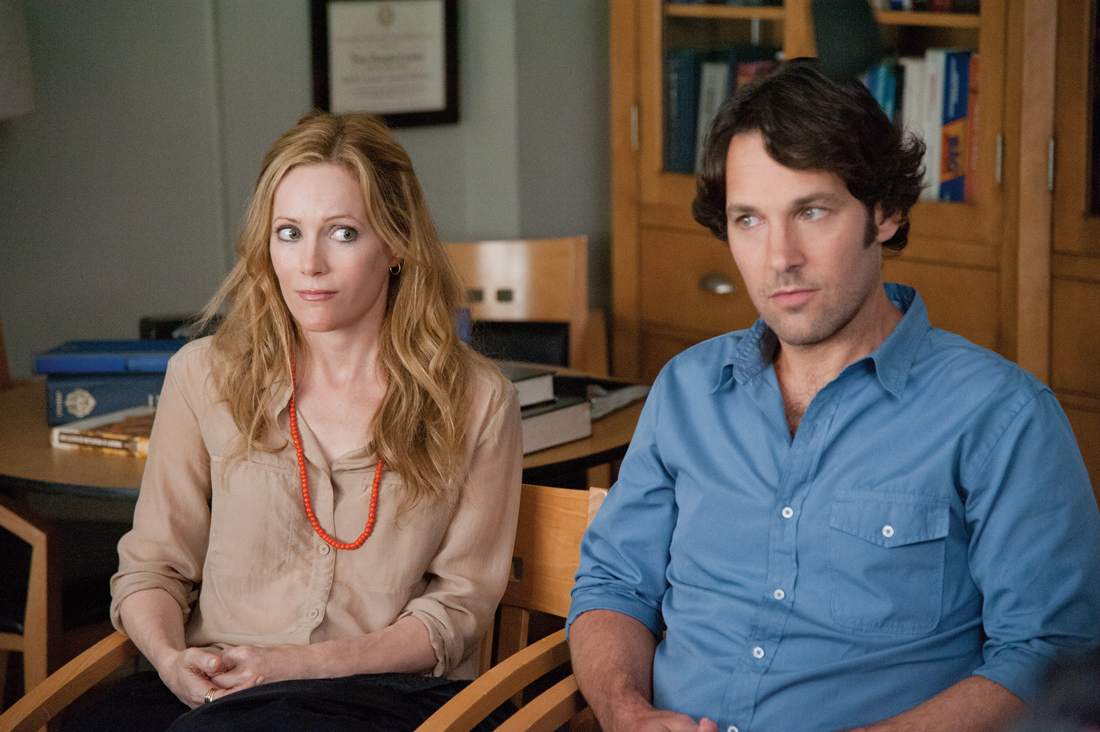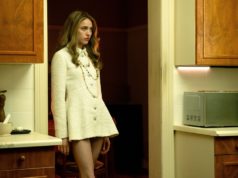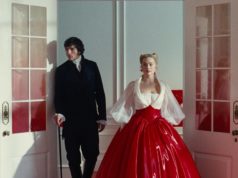On the one hand, Judd Apatow may just be the defining comic genius of our generation. As a producer, he has discovered and nurtured so many talented actors, writers, and directors that his influence is to be found in places as far-flung as The Muppets and TV’s Girls. American comedy would be unrecognizable without his creative input and without the many careers he has aided. On the other hand, his resumé as a filmmaker is surprisingly thin. After cutting his teeth on TV, he made a blazing directing debut with The 40-Year-Old Virgin in 2005. His overrated but engaging second effort Knocked Up was a huge financial hit that made his reputation, but his overambitious 2009 comedy Funny People flopped with audiences. Apatow’s fourth film as a director comes out this week, and so does another comedy headlined by one of those actors who owes his career in large part to Apatow. These films are intended as counterprogramming to the more serious Oscar contenders that dominate the holiday season. Even if they both failed, Apatow’s position would still be more than secure. As it happens, one of them definitely works better than the other.
It’s funny: When I reviewed Knocked Up, I thought that the supporting characters of Pete and Debbie (played by Paul Rudd and Leslie Mann) were interesting and that they belonged in a whole other movie. Evidently Apatow came around to the same conclusion, because This Is 40 is that other movie, placing those characters in the lead. The joke is on both Apatow and me, though, because it turns out that Pete and Debbie can’t carry their own film, and even though the result is quite funny in spots, it’s still Apatow’s weakest directorial effort yet.
Rudd and Mann reprise their roles as the L.A. married couple, while Maude and Iris Apatow (real-life daughters of the director and his wife, Mann) portray their children, now five years older and no longer little girls. The movie takes place during the week that both Pete and Debbie turn 40, though Debbie insists that she’s still 38. The big four-oh isn’t the only thing stressing out this couple, though: Both are hiding minor vices from each other (cupcakes for him, cigarettes for her). Their failure to communicate soon turns into a major issue, as Pete conceals the fact that the record label that he owns is tanking financially, while Debbie doesn’t tell Pete when she learns that she’s pregnant again.
The film is a mess at 134 minutes, but then Apatow’s films have seldom been about tidiness. He loves stuffing his movies with actors he likes and giving them plenty of leeway to improvise. If they do something funny, he’ll leave it in the movie even if it impedes the plot. So we get appearances by Knocked Up holdovers (Jason Segel, Charlyne Yi) and Apatow veterans (Lena Dunham, Chris O’Dowd), plus random cameos (Billie Joe Armstrong, a bunch of hockey players from the Philadelphia Flyers).
These pay dividends in various forms, like a clever scene in which Pete and Debbie silently conspire against a bullying schoolkid’s combative mother (Melissa McCarthy) by goading her into acting insane in front of the school principal. Albert Brooks and John Lithgow portray Pete’s mooching dad and Debbie’s absentee dad, respectively, and the old hands add both laughs and layers to the drama. The Apatow girls turn out to be pretty funny — no surprise given their lineage — and Megan Fox delivers in a showpiece scene as a clerk at Debbie’s vintage-clothing store who explains how she’s able to live beyond her apparent means. (Fox is hilarious here. How’d that happen?) Tim Bagley turns up as an ob/gyn who, reminded that he once compared Debbie’s uterus to the underground passage blocked by a boulder in Raiders of the Lost Ark, reflects, “Yes, I should probably stop using that metaphor with regard to the female reproductive system.”
Apatow overindulges his actors here (he really should get himself a new editor), but there are bigger problems bedeviling this movie. As director, he too often loses control of the tone, with too many scenes devolving into shouting. As screenwriter, his insights about reaching the middle of one’s life are shopworn. Apatow’s sentimental tendencies finally get the better of him this time, gumming up the works in the climactic birthday party sequence, which is supposed to come off like crackling farce and instead ends in a weepy damp squib of a conversation in a hospital room. While Rudd and Mann are brilliant comic actors — check the scene in the ob/gyn’s office as Debbie pretends that she’s thrilled about her pregnancy while freaking out the whole time — they can’t get us to invest in Pete and Debbie’s marriage.
What success The Guilt Trip finds, it owes largely to Seth Rogen. Of course, this is Barbra Streisand’s first starring role in a movie since 1996’s The Mirror Has Two Faces, and this actress who made her name playing larger-than-life characters does a fine job of toning herself down to play an unremarkable New Jersey housewife. Yet the key is Rogen, who doesn’t quail in the face of a show business legend. Your mother or your grandmother may well be unfamiliar with Rogen if she’s the type to avoid the R-rated likes of Superbad, Pineapple Express, and Observe and Report. But if she comes to this movie, she may well be charmed what she finds.
Rogen portrays Andrew Brewster, a California-based organic chemist who has perfected a household cleaning solution and now plans to drive across the country to pitch his environmentally friendly, nontoxic product to America’s biggest retailers. Streisand plays his mother Joyce, whom he visits in Newark just before he embarks on his voyage. Concerned about his mom living without romance, Andy is astounded when Joyce tells him about the boy she fell hopelessly in love with when she was 21, before she met Andy’s dad. An internet search and a phone call allow Andy to run down her first love’s whereabouts in San Francisco, and without telling her about his plans to reunite them, he invites his mom on his road trip.
Screenwriter Dan Fogelman (Crazy, Stupid, Love.) based the story on a real-life trip he took with his mother, and the resulting script is no more than workmanlike. What makes it hum is the rapport between these two lead actors. Rogen’s big frame and loud voice help establish him on an equal footing with his co-star, but it’s really his willingness to engage Streisand that powers this movie. Mother and son love each other, but humorous tension is ever-present in their conversations, often expressed through Andy’s sarcastic muttering in the face of his mother’s eccentricities. Joyce’s thriftiness leads her to insist on renting a compact car for the trip (Andy: “We’re driving across the country in a skateboard!”) and happily exclaim about the amenities in a roadside motel in Abilene. (Andy: “Well, this place does have a quarter of a star.”) Then there’s the fact that Andy turns out to be a terrible pitchman for his product, and yet he won’t listen to his mother’s commonsensical and fairly sound advice on salesmanship. The neuroses and neediness in Streisand’s emotional makeup seemed entirely played out in the mid-1990s, but she’s rejuvenated here by a co-star who’s up for pushing back in a mostly friendly way against her fabled personality.
The set pieces, which include Joyce taking up a Texas steakhouse’s challenge to eat an enormous piece of beef in exchange for a free meal, are mildly pleasant and pulled off with a minimum of fuss by director Anne Fletcher (The Proposal). Better stuff comes during the encounter in San Francisco, which does not go as anyone planned and yet provides Joyce with some unexpected closure. All in all, The Guilt Trip is a breezy good time that, at 95 minutes, is a good deal shorter than its counterpart and pulls gently into its final destination before it wears out its welcome.
[box_info]
This Is 40
Starring Paul Rudd and Leslie Mann. Written and directed by Judd Apatow. Rated R.
The Guilt Trip
Starring Seth Rogen and Barbra Streisand. Directed by Anne Fletcher. Written by Dan Fogelman. Rated PG-13.
[/box_info]












